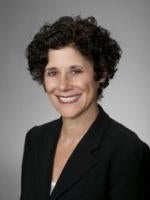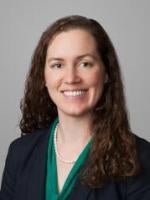Today, December 12, the Department of Labor filed1 a Final Rule clarifying the types of benefits that must be included in the “regular rate of pay.” Under the Fair Labor Standards Act (FLSA), employers must pay workers at least the minimum wage and overtime pay, unless the worker is exempt. The “regular rate of pay” is the amount of compensation on which the overtime pay rate is calculated. The Department of Labor published information and a copy of the Final Rule here.2
Non-exempt employees are due at least one-and-one-half times their regular rate of pay—which is not always the same amount as the employee’s hourly pay rate—for all hours worked over 40 in a work week. The regular rate may be higher than the employee’s hourly rate of pay because the regular rate includes “all remuneration for employment” excepting only payments specifically excluded by the FLSA. 29 CFR §778.108. The Final Rule clarified whether certain benefits should be included in the regular rate, even if they are not specifically listed in the statutory exclusions.
The Department of Labor describes the benefits that can be excluded from the regular rate as:
-
the cost of providing certain parking benefits, wellness programs, onsite specialist treatment, gym access and fitness classes, employee discounts on retail goods and services, certain tuition benefits (whether paid to an employee, an education provider, or a student-loan program), and adoption assistance;
-
payments for unused paid leave, including paid sick leave or paid time off;
-
payments of certain penalties required under state and local scheduling laws;
-
reimbursed expenses including cellphone plans, credentialing exam fees, organization membership dues, and travel, even if not incurred “solely” for the employer’s benefit; and clarifies that reimbursements that do not exceed the maximum travel reimbursement under the Federal Travel Regulation System or the optional IRS substantiation amounts for travel expenses are per se “reasonable payments”;
-
certain sign-on bonuses and certain longevity bonuses;
-
the cost of office coffee and snacks to employees as gifts;
-
discretionary bonuses, by clarifying that the label given a bonus does not determine whether it is discretionary and providing additional examples and;
-
contributions to benefit plans for accident, unemployment, legal services, or other events that could cause future financial hardship or expense
As a result, employers may provide these benefits to non-exempt employees without the concern that the regular rate should account for these benefits (thereby potentially making the overtime rate of pay incorrect and too low).
While the Final Rule provides helpful clarification regarding the regular rate, employers should remain thoughtful when excluding bonus amounts from the regular rate. “Discretionary” bonuses may be excluded, but labelling a bonus as discretionary, alone, cannot support excluding it from the regular rate. The Final Rule provides examples of the types of bonuses that can be excluded as discretionary, but this determination remains very fact-specific and the standard for excluding a bonus from the regular rate remains high. Also, the rule provides that “certain” sign-on and longevity / retention bonuses may be excluded; again, employers should be thoughtful when determining whether the bonuses they provide in these circumstances may properly be excluded from the regular rate.
The Final Rule is effective January 15, 2020. Please feel free to reach out to the Bracewell team with questions regarding this Final Rule and other wage-and-hour considerations.
___________________________________________________
1 The final rule is scheduled for publication in the Federal Register on December 16, 2019.
2 Note that the Department of Labor Final Overtime Rule also becomes effective on January 1, 2020.




 />i
/>i

